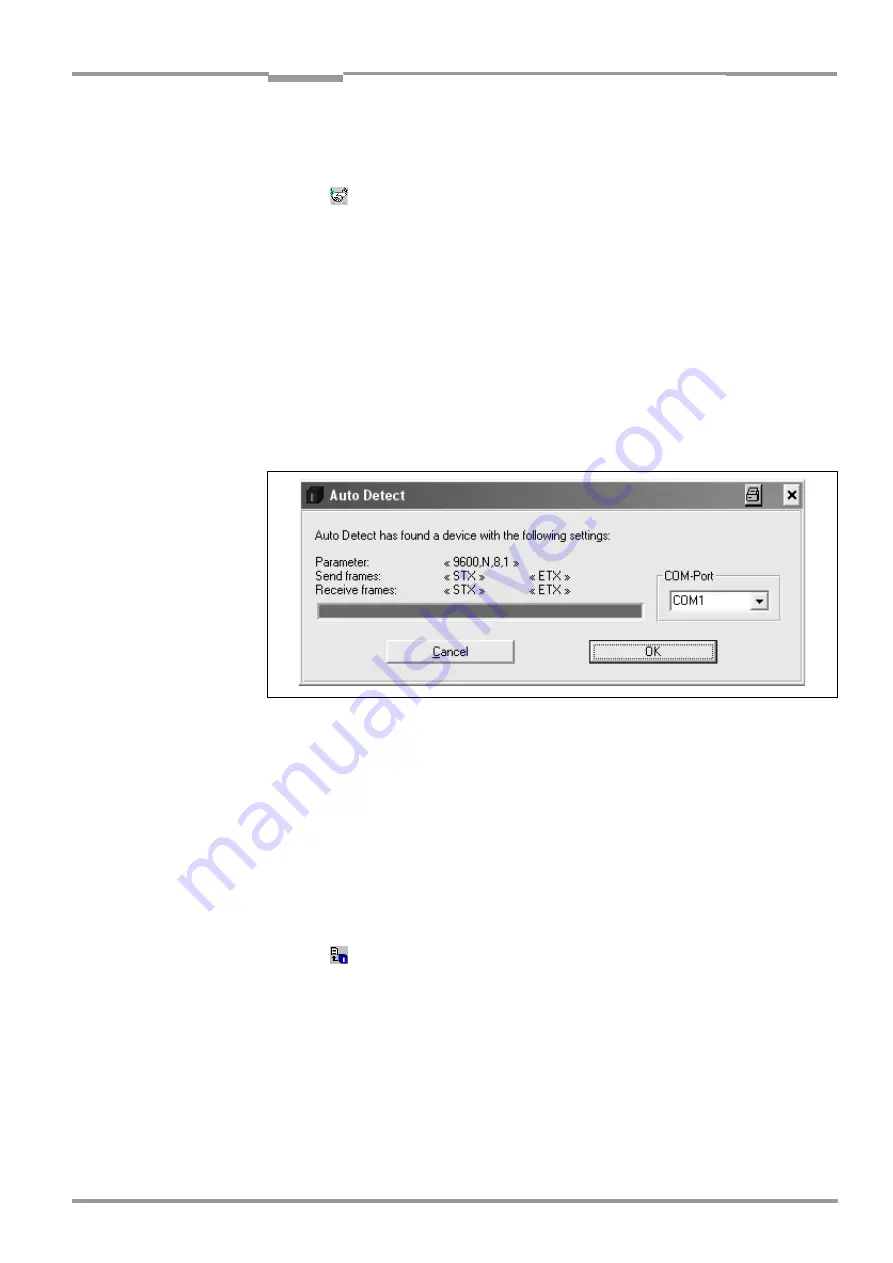
Operating Instructions
Chapter
10
CLX490
8009237/RB47/2007-08-03
©
SICK AG · Division Auto Ident · Germany · All rights reserved
10-19
Appendix
1.
Connect the PC to the auxiliary interface on the CLX using a 3-core RS 232 data cable
(null modem cable) (AMV/S60: connect the PC to the internal 9-pin "Service" plug).
Chapter 5.5.6 Connecting the PC, Page 5-15
2.
Click
(AutoBaud detect) in the toolbar or choose O
PTIONS
, A
UTO
B
AUD
D
ETECT
.
CLV-Setup scans the serial interface by varying the communication parameters and
sends a telegram to the CLX repeatedly. As soon as a response is registered from the
CLX, CLV-Setup signals the detected communication parameters.
shows an example of the results of the AutoBaud detect function. The C
ON
-
NECTED
status is displayed right in the status bar in the bottom of the screen.
3.
Confirm the A
UTO
D
ETECT
dialog box with OK.
CLV-Setup displays the detected CLX type in a separate dialog box and asks you
whether you want to upload the current parameter set from the CLX.
4.
Confirm the dialog box with Yes.
CLV-Setup uploads the current parameter set from the RAM of the CLX to its database
and displays the values on the tabs.
You can edit the current parameter set on the tabs.
– or–
5.
Choose O
PTIONS
, S
ERIAL
I
NTERFACE
from the menu bar.
CLV-Setup displays the current communication parameter settings on the PC in the
COM P
ARAMETERS
dialog box.
6.
Make sure that the communication parameters on the PC and CLX are identical
(
connected
COM port, 9,600 bd, 8 data bits, 1 stop bit, no parity
)
7.
Confirm the dialog box with OK.
CLV-Setup attempts to communicate with the CLX again.
If it is successful, it displays the C
ONNECTED
status right in the status bar in the bottom
of the screen.
8.
Click
in the toolbar.
CLV-Setup then uploads the current parameter set from the RAM of the CLX to its
database and displays the values on the tabs.
You can edit the current parameter set on the tabs.
Fig. 10-11: CLV-Setup: Result display of the AutoBaud Detect function






























